Thailand’s sex industry is a complex issue, driven by economic factors and tourism, facing challenges with enforcement despite international efforts to combat trafficking.
The industry’s profitability and geographical location contribute to its persistence, with porous borders facilitating exploitation and posing significant legal and ethical dilemmas.
Historical Context of Prostitution in Thailand
Historically, prostitution in Thailand has deep roots, evolving alongside economic shifts and social structures. While not formally documented extensively in ancient times, evidence suggests its presence linked to religious sites and royal courts.
The modern industry gained prominence during the Vietnam War era, fueled by the influx of American GIs seeking recreation. This period established Thailand as a destination for sex tourism, a pattern that continues to influence the industry’s landscape today, despite ongoing legal and ethical concerns.
Current Scale and Scope of the Industry
Currently, Thailand’s sex industry remains substantial, though precise figures are difficult to ascertain due to its largely clandestine nature. It encompasses street prostitution, go-go bars, massage parlors, and increasingly, online platforms.
Estimates suggest tens of thousands of individuals are directly involved, with a significant proportion being victims of trafficking. The industry generates considerable revenue, impacting Thailand’s tourism sector and presenting ongoing challenges for law enforcement and social services.
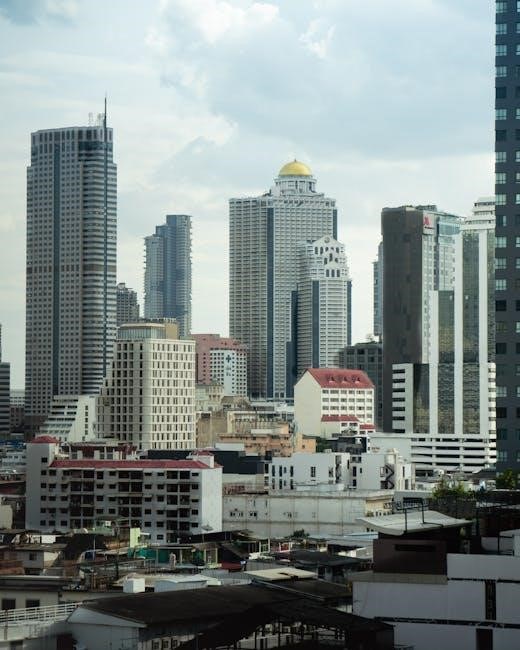
Legal Framework Surrounding Sex Work in Thailand
Thai law technically prohibits prostitution, yet loopholes and inconsistent enforcement allow the industry to flourish, creating legal risks for all involved parties.
Prostitution Laws: What is Officially Illegal?
Under Thai law, the direct act of prostitution – the exchange of sexual services for money – is officially illegal. This encompasses both the seller and the purchaser of such services. However, laws primarily target those directly involved in facilitating prostitution, such as brothel owners and pimps.
Specifically, operating a brothel, procuring individuals for prostitution, and profiting from the exploitation of others are criminal offenses. While the act itself is prohibited, enforcement focuses on suppressing the businesses and individuals enabling it, rather than the sex workers themselves.
Loopholes and Enforcement Challenges
Despite legal prohibitions, the sex industry thrives due to significant loopholes and enforcement difficulties. Corruption and a degree of tolerance from authorities contribute to the industry’s persistence. Laws are often circumvented through establishments offering “massage” or entertainment services that subtly facilitate prostitution.
The focus on suppressing facilitators, rather than buyers or sellers, creates a system where the demand remains unmet, and exploitation continues. These challenges hinder effective intervention and allow trafficking to flourish.
The Role of Massage Parlors and Other Establishments
Massage parlors and spas frequently operate in a grey area, serving as fronts for prostitution. While offering legitimate services, many establishments provide additional, illicit options discreetly. Similar patterns exist within some hotels, karaoke bars, and nightclubs, blurring the lines between legal business and sex work.
These establishments exploit loopholes in the law, presenting a significant challenge to enforcement efforts and contributing to the widespread availability of commercial sex.

Types of Sex Work Available in Thailand
Thailand offers diverse forms of sex work, including street prostitution, go-go bars, massage parlors, and increasingly, online escort services, catering to varied tourist demands.
Street Prostitution
Street prostitution in Thailand is prominently visible in major cities and tourist destinations, often concentrated in specific red-light districts. This form presents heightened risks for sex workers, including vulnerability to violence, exploitation, and sexually transmitted infections.
Law enforcement’s inconsistent approach contributes to its prevalence, while economic desperation drives many individuals into this line of work, facing social stigma and limited legal protections; It remains a significant, yet dangerous, facet of the Thai sex industry.
Go-Go Bars and Nightclubs
Go-go bars and nightclubs across Thailand are central to the sex tourism industry, offering entertainment alongside opportunities for sexual encounters. These establishments often feature dancers and performers, with interactions frequently leading to paid sexual services.
While not explicitly legal, they operate within a grey area, presenting risks of exploitation and trafficking. Tourists are drawn to these venues, contributing to the demand and perpetuating the cycle of vulnerability for those employed within them.
Massage Parlors and Spas
Thai massage parlors and spas frequently present a deceptive front, often offering legitimate services alongside illicit sexual activities. Many operate in a legal grey area, blurring the lines between therapeutic massage and prostitution.
These establishments can be particularly dangerous, with reports of exploitation and trafficking. Tourists should exercise extreme caution, recognizing that seemingly innocent venues may conceal hidden, illegal operations and potential harm.
Online Sex Work and Escort Services
Thailand’s digital landscape has fostered a growing online sex work industry, with numerous websites and apps facilitating connections between sex workers and clients. These platforms often feature escort services, offering a range of services and price points.
However, this online realm presents heightened risks of exploitation, trafficking, and scams. Individuals engaging with these services should be aware of the potential dangers and legal ramifications involved.
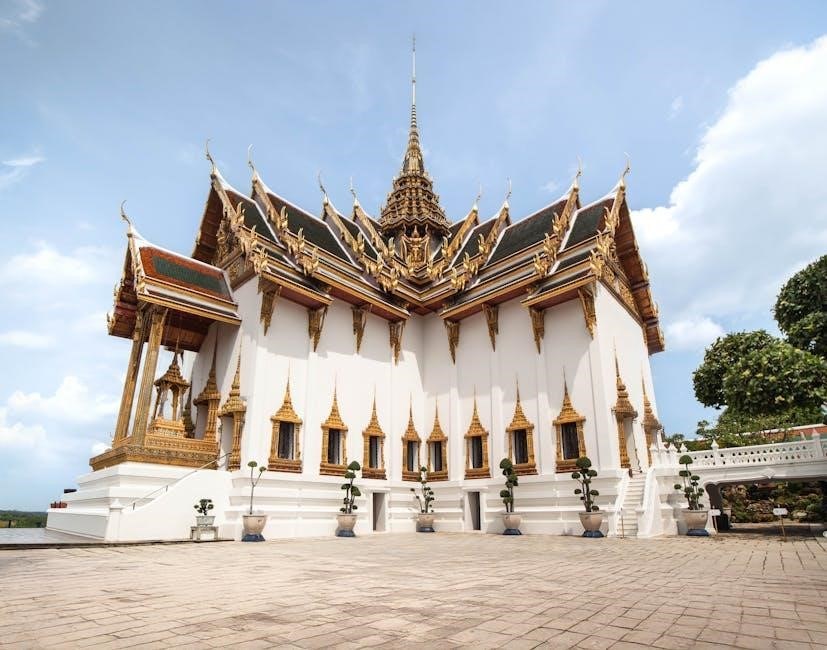
Risks and Dangers Associated with the Sex Industry
Thailand’s sex industry carries substantial risks, including STIs, legal consequences, exploitation, trafficking, and potential for violence—affecting both workers and tourists.
Health Risks: STIs and HIV/AIDS
The sex industry in Thailand presents significant health risks, notably sexually transmitted infections (STIs) like gonorrhea, syphilis, and chlamydia. HIV/AIDS remains a serious concern, despite prevention efforts. Inconsistent condom use dramatically increases vulnerability. Limited access to healthcare and testing exacerbates these dangers for sex workers and clients alike. Awareness campaigns and readily available protection are crucial, yet challenges persist due to stigma and enforcement issues. Regular testing and responsible practices are vital for mitigating these health threats.
Legal Risks for Tourists and Sex Workers
Thailand’s laws technically prohibit prostitution, creating legal vulnerabilities for both tourists and sex workers. Tourists engaging in sex work face potential arrest, fines, and deportation. Sex workers risk prosecution, despite widespread practice. Loopholes and inconsistent enforcement complicate matters. Involvement with trafficking, even unknowingly, carries severe penalties. Foreigners are often targeted, and legal recourse can be limited. Understanding and respecting Thai law is crucial to avoid serious consequences.
Exploitation and Trafficking Concerns
Thailand remains a significant source, transit, and destination country for human trafficking, particularly for sexual exploitation. Individuals are often lured with false promises, then forced into sex work to pay off debts – sometimes reaching hundreds of dollars. Vulnerable populations, including those from neighboring countries, are at high risk. Porous borders and corruption exacerbate the problem, hindering effective intervention and prosecution of traffickers.
Violence and Abuse
Sex work in Thailand frequently involves physical, sexual, and psychological abuse for those involved. Trafficked individuals face particularly severe risks, often enduring debt bondage and coercion. Lack of legal protection and societal stigma contribute to a climate of impunity for perpetrators. Limited access to healthcare and support services further compounds the vulnerability of sex workers, increasing their exposure to harm and hindering recovery.
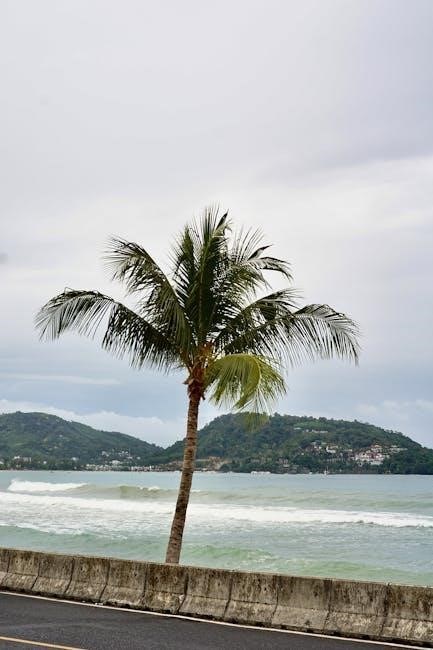
Human Trafficking and Child Prostitution in Thailand
Thailand serves as a key transit and destination country, with victims trafficked from neighboring nations, often exploited through debt bondage and coercion.
Sources of Trafficked Individuals
Thailand’s proximity to countries experiencing conflict and poverty – Myanmar, Laos, Cambodia, China, and Vietnam – makes it vulnerable to trafficking flows. Individuals are often lured with false promises of employment, then exploited. Many victims originate from marginalized communities, lacking economic opportunities and facing discrimination. Brokers target vulnerable populations, capitalizing on desperation and limited access to legal protections, creating a cycle of exploitation.
Methods Used by Traffickers
Traffickers employ deceitful recruitment tactics, promising legitimate jobs before subjecting individuals to debt bondage – often requiring them to pay off substantial “fees” ranging from 200-875 USD. They exploit porous borders and waterways for transportation. Local brokers and small groups dominate trafficking activities within Thailand, controlling victims through coercion, isolation, and threats, hindering escape and perpetuating exploitation.
International Efforts to Combat Trafficking (ECPAT, ILO, UNICEF)
Organizations like ECPAT, the ILO, and UNICEF collaboratively strive to eradicate child sex tourism by advocating for the rigorous application of international laws. Despite a shared mission, these groups encounter substantial obstacles in Thailand. Current measures prove largely ineffective due to disregard from traffickers, tourists, and insufficient governmental oversight, hindering progress against this deeply rooted exploitation.
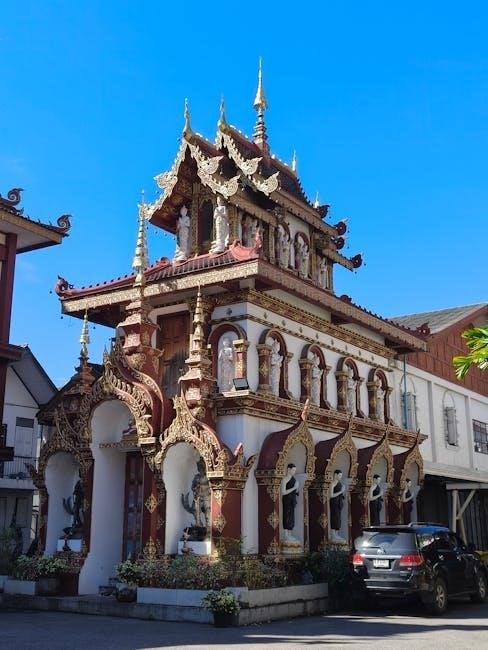
Geographical Hotspots for Sex Tourism
Bangkok’s Patpong and Soi Cowboy, Pattaya’s Walking Street, and Phuket’s Patong Beach are notorious destinations attracting sex tourists within Thailand.
Bangkok: Patpong and Soi Cowboy
Patpong and Soi Cowboy in Bangkok are internationally recognized red-light districts, offering a concentrated array of sex-related services and entertainment venues. These areas attract a significant number of tourists seeking readily available options, ranging from go-go bars to street prostitution.
Despite ongoing police efforts, these hotspots continue to operate with a degree of openness, presenting complex challenges related to law enforcement and exploitation. The areas are characterized by a vibrant, yet often problematic, nightlife scene.
Pattaya: Walking Street
Pattaya’s Walking Street is notorious as a major hub for sex tourism in Thailand, boasting a high concentration of go-go bars, nightclubs, and establishments offering adult entertainment. This pedestrianized street pulsates with activity, attracting a large international clientele seeking various services.
The area faces persistent issues regarding exploitation and trafficking, despite attempts at regulation. Walking Street represents a significant, and controversial, facet of Pattaya’s tourism industry.
Phuket: Patong Beach
Patong Beach in Phuket is a renowned destination for sex tourism, featuring a vibrant nightlife centered around Bangla Road. This area offers a wide array of adult entertainment venues, including go-go bars, massage parlors, and escort services, catering to a diverse international tourist base.
Like other hotspots, Patong faces challenges related to exploitation and trafficking, requiring ongoing vigilance and intervention efforts.
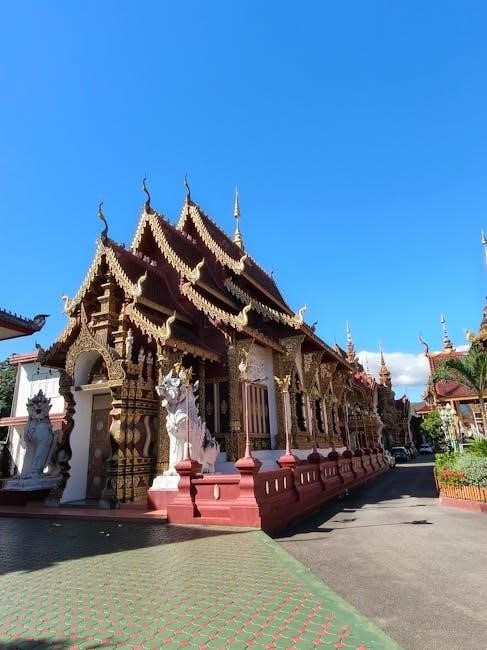
Economic Factors Driving the Industry
Poverty, limited opportunities, and substantial tourist demand fuel Thailand’s sex industry, alongside corruption and insufficient government oversight, creating a profitable yet problematic system.
Poverty and Lack of Opportunities
Economic vulnerability significantly drives individuals into Thailand’s sex industry, particularly those from rural areas and neighboring countries facing limited prospects. Many are compelled by debt, often purchased by brothel owners for sums between 200-875, requiring repayment through exploitation.
The lack of alternative livelihoods, coupled with proximity to regions experiencing conflict like Myanmar, Laos, and Cambodia, exacerbates the problem, making sex work appear as a desperate option for survival.
Demand from Tourists
Tourist demand fuels Thailand’s sex industry, creating a lucrative market that perpetuates exploitation. The country’s reputation as a destination for sex tourism attracts individuals seeking readily available commercial sex, contributing to the industry’s economic viability and scale.
This demand, combined with weak enforcement and corruption, allows the industry to flourish despite its illegality, impacting vulnerable populations and hindering efforts to combat trafficking.
Corruption and Lack of Government Oversight
Corruption within Thailand’s system significantly hinders efforts to dismantle the sex industry. A lack of consistent government oversight and enforcement allows traffickers and establishments to operate with relative impunity, fostering a climate where exploitation thrives.
This systemic issue, coupled with economic incentives, enables the industry’s persistence, despite legal prohibitions and international pressure to address human trafficking concerns.
Cultural Attitudes Towards Sex Work
Thai society exhibits a complex interplay of social stigma, traditional beliefs, and evolving perspectives regarding sex work, impacting its acceptance and regulation.
Social Stigma and Discrimination
Despite the prevalence of the sex industry in Thailand, significant social stigma and discrimination are faced by those involved. Sex workers often encounter prejudice, hindering access to healthcare, legal protection, and societal integration. Traditional values contribute to negative perceptions, leading to marginalization and limited opportunities for alternative livelihoods. This stigma extends to families and communities associated with sex work, perpetuating a cycle of disadvantage and vulnerability, requiring nuanced cultural understanding.
Traditional Beliefs and Practices
Historically, certain traditional beliefs in Thailand have complexly interacted with sex work, sometimes involving spirit worship or beliefs about appeasing deities through offerings, though not directly endorsing prostitution. These practices, alongside societal views on sexuality, have shaped attitudes. However, modernization and globalization are challenging these norms, creating a tension between traditional values and contemporary realities within the evolving landscape of the sex industry and its cultural context.
Changing Attitudes in Modern Thailand
Modern Thailand witnesses evolving perspectives on sex work, driven by increased awareness of human trafficking and exploitation. While social stigma persists, growing advocacy for sex workers’ rights and discussions around decriminalization are emerging. Younger generations often display more liberal views, contrasting with older, more conservative attitudes. This shift reflects broader societal changes and a growing recognition of the complexities surrounding the industry and its impact.

Safety Tips for Tourists Engaging in Sex Work (Disclaimer: Not Endorsement)
Prioritize protection, negotiate prices upfront, and avoid illegal activities; remember engaging carries significant legal risks and potential health consequences in Thailand.
Negotiating Prices and Services
Clearly establish costs before any encounter, as inflated charges are common; discuss all services included to avoid misunderstandings and unexpected fees. Be firm but polite during negotiation, understanding local customs but protecting your financial interests.
Remember that agreeing to additional services beyond the initial discussion can lead to significantly higher bills. Always confirm the total price and payment method beforehand, and be wary of brokers adding hidden costs.
Using Protection (Condoms)
Prioritizing your health is crucial; always insist on condom use during any sexual encounter, as STI rates, including HIV/AIDS, remain a significant concern in Thailand. Carry your own supply to ensure quality and availability, as not all establishments consistently provide them.
Be assertive and refuse service if protection isn’t offered or if a condom is damaged. Your health and safety are paramount, and consistent condom use is essential for responsible behavior.
Avoiding Illegal Activities
Thailand’s laws regarding prostitution are complex; engaging with underage individuals or participating in trafficking is strictly prohibited and carries severe penalties. Be cautious of seemingly legitimate establishments potentially masking illegal operations.
Avoid any situation where coercion or exploitation is suspected, and report any concerns to the authorities. Understanding and respecting Thai law is vital to avoid legal repercussions and ethical compromises during your travels.
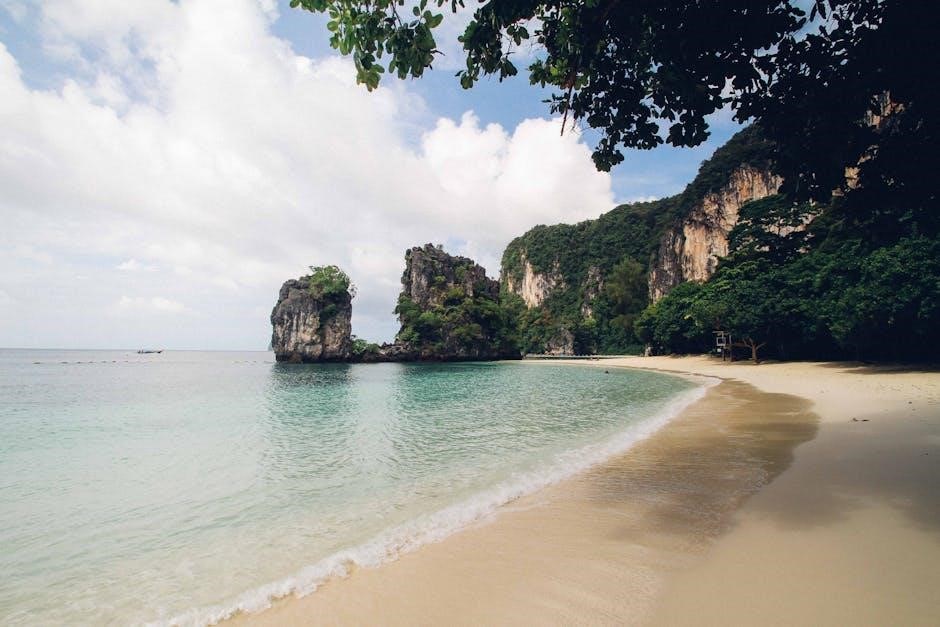
Resources for Victims of Trafficking and Exploitation
Hotlines and organizations like ECPAT, ILO, and UNICEF offer vital support, legal aid, and shelter for trafficking victims in Thailand.
Hotlines and Support Organizations
Numerous organizations dedicate themselves to assisting victims of trafficking and exploitation within Thailand. ECPAT Thailand actively combats the sexual exploitation of children, offering crucial intervention services. The International Labour Organization (ILO) focuses on labor rights and protection, while UNICEF provides comprehensive care.
Direct support is available through hotlines offering confidential assistance and guidance. These resources connect individuals with shelters, legal aid, and rehabilitation programs, aiming to empower survivors and facilitate their recovery from trauma.
Legal Assistance
Accessing competent legal counsel is vital for victims of trafficking and exploitation in Thailand. Several organizations provide pro bono or low-cost legal services, navigating the complex Thai legal system. These lawyers specialize in human trafficking, sexual assault, and related offenses, ensuring victims’ rights are protected.
They assist with reporting crimes, obtaining protective orders, and pursuing legal remedies against perpetrators, offering crucial support throughout the judicial process and advocating for justice.
Shelters and Rehabilitation Centers
Thailand offers numerous shelters and rehabilitation centers for survivors of sex trafficking and exploitation, providing safe housing, medical care, and psychological support. These facilities offer comprehensive programs designed to address trauma, rebuild lives, and foster self-sufficiency.
Services include counseling, education, vocational training, and legal assistance, empowering survivors to reintegrate into society and achieve lasting independence, escaping cycles of abuse.
The Future of the Sex Industry in Thailand
Thailand’s sex industry faces uncertain future prospects, potentially involving legalization debates, evolving tourism trends, and continued anti-trafficking initiatives for lasting change.
Potential for Legalization or Decriminalization
Debates surrounding legalization or decriminalization of sex work in Thailand persist, fueled by arguments regarding worker safety, revenue generation, and human rights. Current laws create loopholes exploited by traffickers, hindering effective regulation.
Legalization could enable oversight and protection, while decriminalization aims to remove criminal penalties for sex workers, reducing vulnerability. However, concerns remain about potentially increasing demand and normalizing exploitation, requiring careful consideration of societal impacts and ethical implications.
Impact of Tourism Trends
Thailand’s tourism industry significantly fuels the sex trade, with demand from international visitors driving its scale and scope. Shifts in tourism – such as increased budget travel or changing destination preferences – directly impact the industry’s dynamics.
A decline in traditional sex tourism hotspots could lead to shifts towards online platforms or other areas. Conversely, rising tourism may exacerbate exploitation risks, necessitating proactive measures to protect vulnerable individuals and combat trafficking.
Ongoing Efforts to Combat Trafficking
Thailand faces persistent challenges in combating sex trafficking, despite collaboration with international organizations like ECPAT, the ILO, and UNICEF. These groups advocate for stricter law enforcement and victim protection.
Current efforts focus on disrupting trafficking networks, providing support to survivors, and raising awareness. However, corruption and weak enforcement remain significant obstacles, hindering progress and requiring sustained, multi-faceted interventions.

Ethical Considerations for Travelers
Travelers should recognize the harmful impacts of sex tourism and prioritize responsible initiatives, respecting Thai culture and laws to avoid contributing to exploitation.
The Harmful Impacts of Sex Tourism
Sex tourism perpetuates exploitation, fueling human trafficking and child prostitution, as evidenced by ongoing concerns in Thailand. It normalizes abuse, contributing to severe physical and psychological trauma for victims, often trapped in cycles of debt and violence.
Furthermore, it undermines local communities, reinforces social inequalities, and hinders genuine economic development, creating a demand that sustains a harmful and illegal industry.
Supporting Responsible Tourism Initiatives
Travelers can actively combat exploitation by choosing ethical tour operators and accommodations that prioritize community benefit and fair labor practices in Thailand. Supporting businesses committed to preventing trafficking and promoting human rights is crucial.
Educating oneself about the harms of sex tourism and advocating for responsible travel policies can contribute to a more sustainable and ethical tourism industry, fostering positive change.
Respecting Thai Culture and Laws
Tourists visiting Thailand must understand that, despite the visible presence of the sex industry, prostitution is technically illegal, creating legal risks for all involved. Demonstrating respect for Thai cultural norms and sensitivities is paramount.
Engaging in sex work or supporting related activities can contribute to exploitation and undermine efforts to combat human trafficking, violating both Thai law and ethical principles.
